The Bündnis Sahra Wagenknecht (BSW) party is the newest party in the February election. Their strapline is "our country deserves more." In their manifesto, making Germany better again is their main theme, which they propose to do in various ways. When it comes to migration, they say they want to "stop irregular migration."
For the upcoming elections, InfoMigrants takes a closer look at where Germany's top seven political parties stand on migration and asylum policy. So far, we have published a summary of the Conservatives (CDU/CSU) policy proposals, the Social Democrats (SPD), the Greens, the Free Liberals (FDP) and the Alternative for Germany (AfD), and the Left party (Die Linke).
Bündnis Sahra Wagenknecht (BSW) or the Sahra Wagenknecht Alliance party is named after its founder and leader, Sahra Wagenknecht. She, and many of its leading members, originally came from the Left (Die Linke) party. However, their views on migration and many other issues are not the same.
Migration is only mentioned once in the preamble to their manifesto, half-way through and in a paragraph that begins with "Our aim is to make streets and squares safer by deploying more police officers, as well as stopping irregular migration."
Immediately after that sentence, the paragraph continues to talk about the inequality that the party believes was made worse under the Corona pandemic. Continuing with the same paragraph, BSW concludes that it needs to make "direct democracy stronger. Defend the freedom of opinion and protect personal freedoms."
The next paragraph returns to the improving Germany theme, saying, "in a world full of conflicts and instability, we need to speak up for Germany’s interests and promote its strengths."
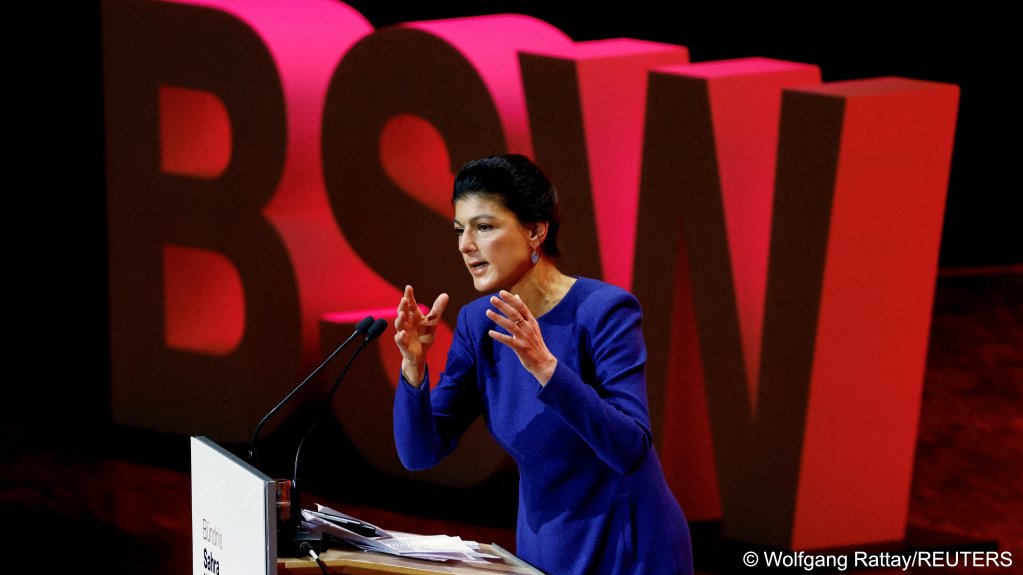
during a one day party congress in Bonn, Germany, January 12, 2025 | Photo: Wolfgang Rattay / Reuters
Security and 'protecting freedom'
Migration is mentioned in a section of the manifesto entitled 'Security and protecting freedom', which begins on page 34 of the 45-page manifesto. So, at least from the placing in the document, it doesn’t seem to be the party’s most pressing priority.
Most of this section is concerned with providing an analysis of what is wrong with the current system in the party's opinion, rather than suggesting many concrete policies for change.
BSW’s philosophy states that "security is the condition for freedom and for peaceful coexistence in Germany." The party then says that they "stand for security and freedom."
According to the party manifesto, "more and more people in Germany don’t feel safe anymore in public." The party promises to boost the police so that they can create more security and fight criminality in the country.
BSW says it wants to "fight clan criminality." This is essentially to describe organized crime in Germany, but the word is often used as a shorthand for indicating "clans" which are often, but not exclusively, made up of families who at one point or another migrated to Germany, in particular to describe people from the Middle East and particularly Lebanon, many of whom first arrived in Germany in the eighties following the war in Lebanon.
Read AlsoGerman elections: Conservatives promise more restrictive migration policies
Secure borders
The section of the manifesto under the heading ‘secure borders’ starts with the sentence, "Since 2015, Germany has absorbed the number of people equivalent to a big city." It continues with the observation that "more than a quarter of a million people arrived last year [2024]."
BSW says that "although the number of asylum seekers arriving is going down, it is still too high." Because of the high numbers of migrants Germany has 'absorbed' explains BSW’s manifesto, "children are forced to learn in over-full classes, in which a large part of the class can’t even speak German."
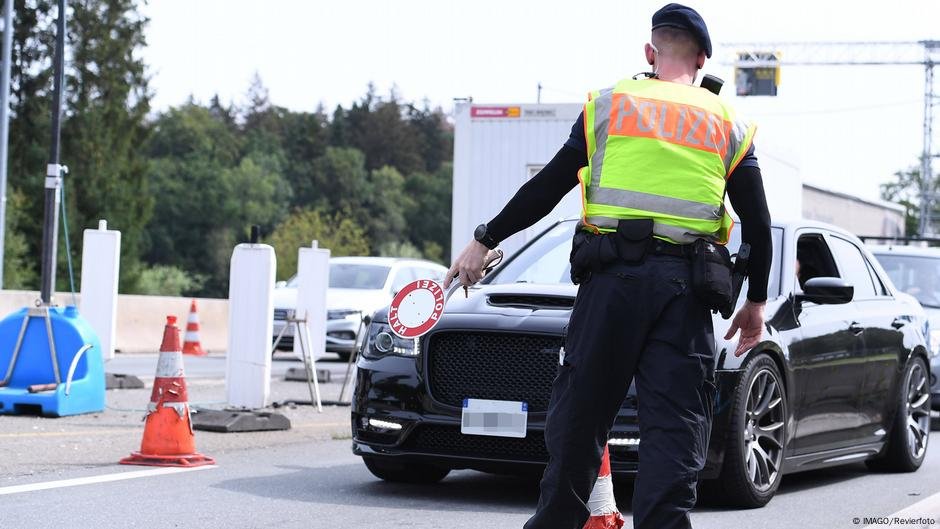
Immigration in BSW’s analysis, similar to some of the reasoning in the AfD’s manifesto, is also blamed for the difficulty for "normal earners" to find housing, and that in particular women "tend to avoid certain streets or areas, or even public swimming baths, because they no longer feel safe."
The BSW believes that Germany has attracted so many migrants and asylum seekers because of the social welfare benefits it offers to them. They add that a strong social welfare system can only work if not everyone is allowed to enter the country. In the BSW’s opinion, "countries like Denmark [that although governed by a social-democratic led coalition, has tough migration policies] have understood this."
The party claims in its manifesto that the welfare support given to "refugees", by which they mean asylum seekers and refugees, "has risen from around six billion euros in 2021 to nearly 14 billion euros."
Them and us
The manifesto then claims that "when social welfare money intended for citizens is used more and more to fund asylum seekers, then the acceptance of these people will be damaged, and also prevents others, for instance, single parents, from obtaining a place in a nursery [for their children]."
In response, the BSW wants to implement a "job turbo" to speed up the access to the job market for refugees and Ukrainians in Germany.
BSW also says that the German authorities up until now have been "naïve" in who they have allowed in and how much, "or how little," they really know about these people. They call that a "security risk." They say this "naïve approach, has in the last few years led to a disproportional increase in knife crime, sexual offenses and religious motivated terrorism."
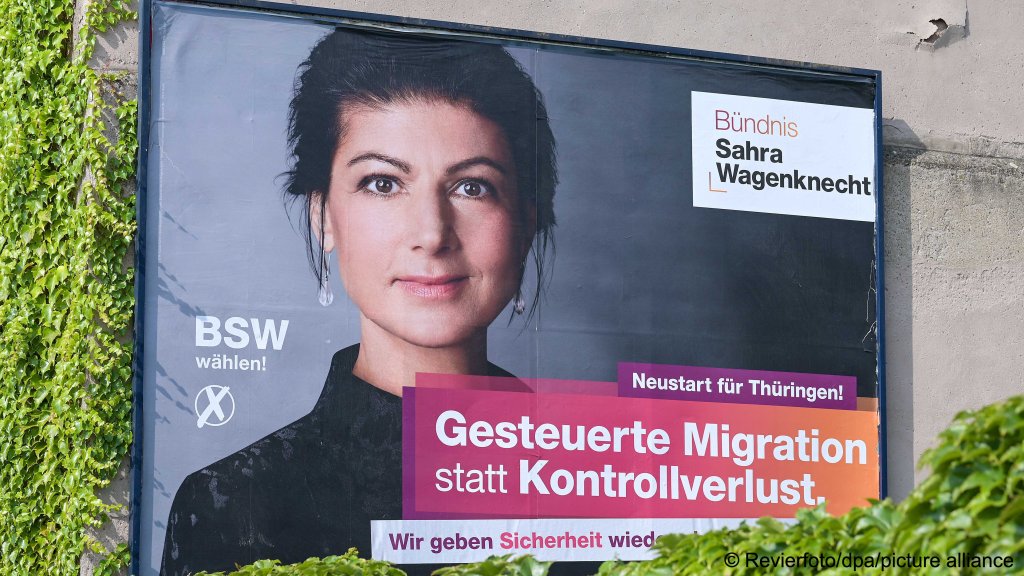
Deportation
The BSW believes that not enough has been done in Germany to send those who have been asked to leave back to their countries. They single out the fact that even those who have been condemned of a crime are not always sent back, or not quickly enough.
The party underlines that "the inability of politicians to address these issues is upsetting a lot of people." According to the party, "even a lot of very well-integrated migrants, who want to uphold our laws and are a valuable part of our society, are asking for a change in approach to Germany’s migration policy."
That, says the party, is because failing to deal with the question of integration adequately, failing to deal with "Islamist violence, and crimes committed by foreigners is causing a climate of hate towards all foreigners."
Read AlsoImmigration: German voters want to accept fewer refugees
Germany needs 'to take a break'
BSW says that they uphold the basic principles of asylum law and the right to protection, to which Germany is a signatory. At the same time, however, says the manifesto, "we want to end uncontrolled migration."
"Germany needs to take a break over the next few years," thinks the party. They believe that from now on "those who arrive in Germany but have already been in a safe third country should not be allowed to stay. Those who have no right to stay, cannot start an asylum process, and so cannot claim welfare benefits." The manifesto does not clarify how asylum claims by migrants arriving at the border should be handled.
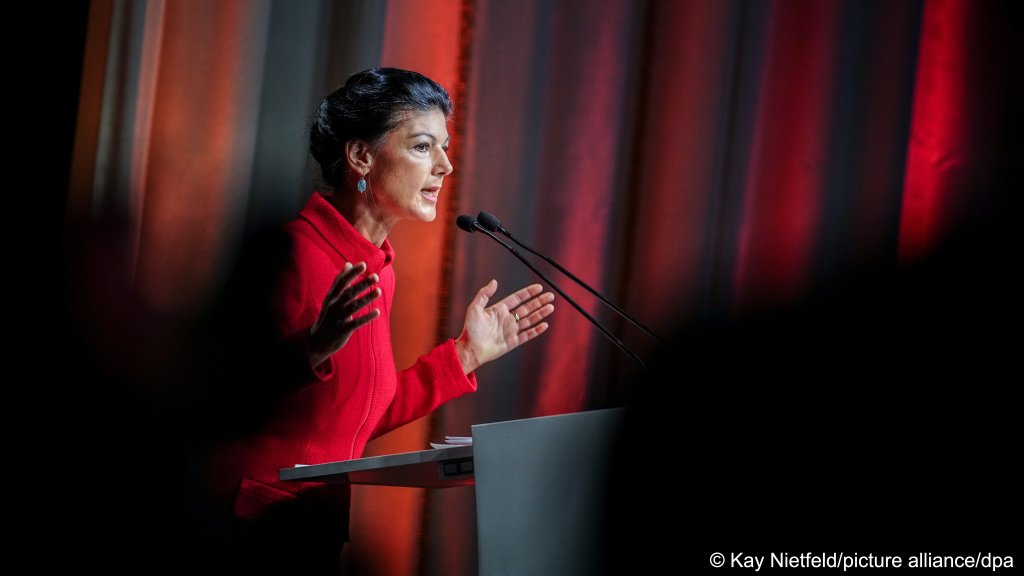
The manifesto was written before the latest attack in Munich happened, where an Afghan national reportedly drove a car into a crowd of people in the center of Munich. However, the manifesto lists three other attacks during 2024 (Mannheim, Solingen and Magdeburg) that involved suspects who migrated to Germany in recent decades, and in which people died.
Read AlsoGermany: Aschaffenburg attack prompts political blame game
Germany authorities 'failed'
These three attacks "shook Germany," states the manifesto, adding that in these cases it was often the failure of the German system or of the German authorities that meant that these people were still in Germany.
In the case of the Solingen attack, "the suspected perpetrator should not have been in Germany" if the “deportation process had worked," BSW claims. The suspect in the Magdeburg attack also had "previous convictions" which should have had an influence over the decision in 2016 to grant him asylum, thinks BSW.
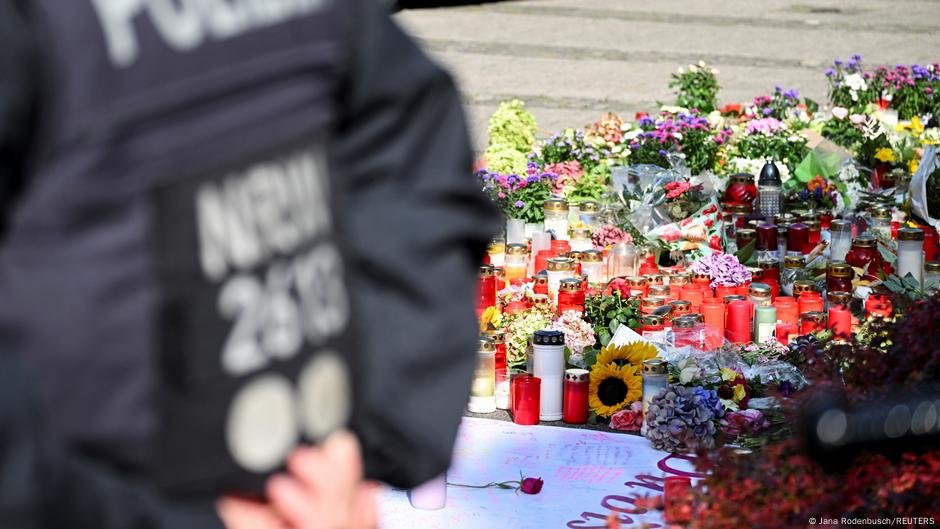
The BSW says they want to make sure that German laws are changed, so that anyone with asylum or refugee status, who commits a serious crime, will lose their right to asylum in Germany. They also want to make sure that the protections put in place to avoid sending people back to a place of danger "should only be enacted where there are clear indications that the person being sent back would be threatened with the death penalty."
Any migrant who comes into conflict with German laws, "must be expelled and if necessary deported. Appropriate official and court proceedings must be carried out quickly and made a priority."
Read AlsoAt least 28 injured after car drives into crowd in Munich
Living in Germany without permission
In Germany, according to data from the foreigner’s register for the end of 2023, states the BSW manifesto, there are 572,000 people without permission to be in the country. These are either people waiting for their asylum status to be clarified, or they have been issued with a "duldung" -- a temporary suspension of their notice to leave -- perhaps because of their work status, or because of evidence of successful integration, reads the manifesto.
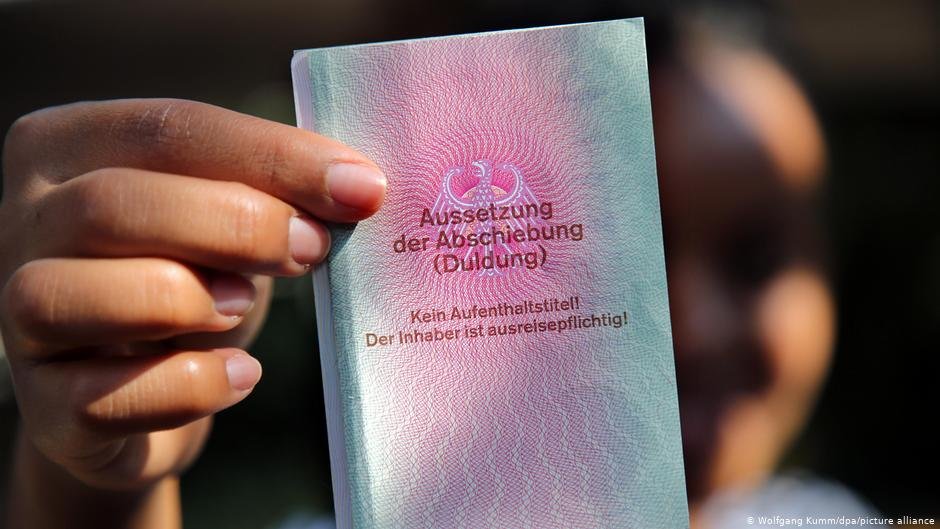
BSW states that all these people should be asked to leave Germany quickly to "send a message to other potential migrants, that you can’t stay forever in Germany if you have no claim to protection."
The party also claims that between January and September 2024, out of 38,328 planned deportations, the attempts failed in 23,610 of cases. According to the party, "asylum law is often abused, and the laws and rules around deportations need to be properly enacted." They believe more personnel might be needed to make sure that all processes can be concluded within three months.
Read AlsoAustria: Criticism over dialect courses for asylum seekers
Integration
In the BSW’s opinion, the German authorities often end up deporting people who are the "easiest" to deport, which most often appear to be "well-integrated migrants with a stable address and who are working or training,” and so easiest to locate for the planned deportation.
The BSW wants the authorities instead to concentrate on deporting "those who are not integrated, or don’t even want to integrate."
Integration starts with learning the German language and then participating in the German job market, BSW states. They suggest that Germany should offer adult learning classes, where migrants could obtain school and training qualifications to allow them access to the German employment market.
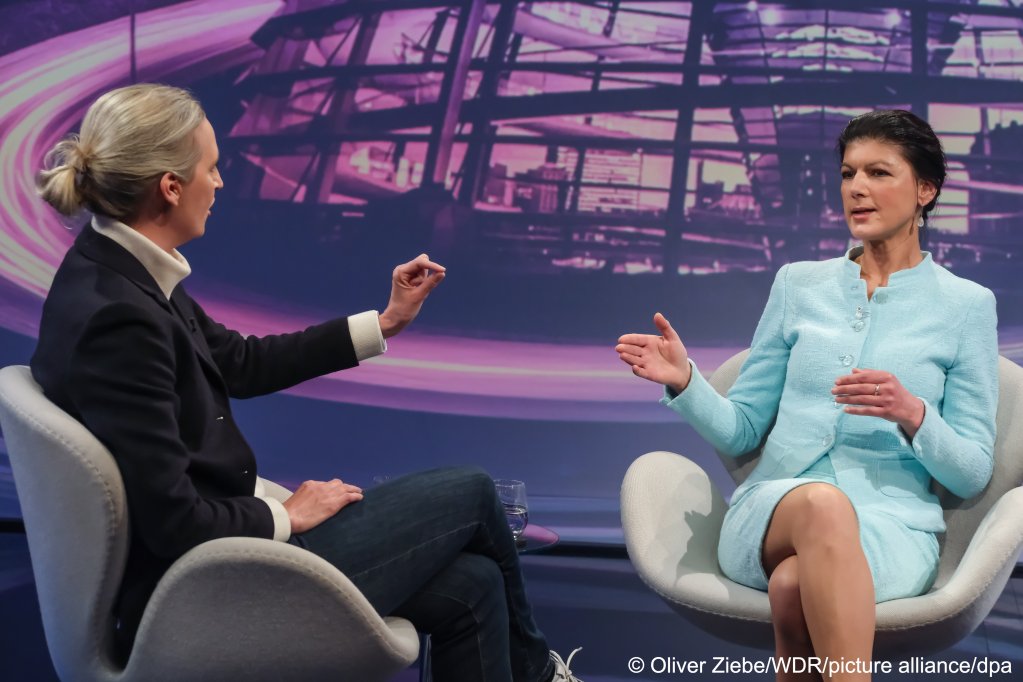
'Can’t choose where to seek asylum'
The BSW says that the EU’s asylum policy is "dysfunctional," because in their opinion, it is fueling criminal smuggling gangs and lining their pockets, and those who are too poor to pay smugglers don’t get a chance of seeking asylum or a better life anyway.
They propose offering asylum in "safe third countries" outside the EU to those who are trying to enter Europe with the help of smugglers.
They propose taking Germany out of the Global migration pact and concentrating more on addressing the causes of displacement in the countries of origin. "Helping many more people in their own countries, rather than taking a smaller proportion in Germany," states the BSW.
In the BSW’s opinion, those who make it to Germany are not normally the ones most in need of protection.
Read AlsoHow immigrant voters could determine the German election
Migration linked to geopolitics
They end the section on migration by returning to the bigger themes contained in their manifesto.
In the BSW’s view, migration and the reasons for it, are closely linked to geopolitics. In their analysis, "the majority of migrants entering Germany in the last decade come from countries, or through countries that were destabilized by the USA and its allies: Afghanistan, Syria, Iraq, Libya."
They say, to stop migration, you must stop supporting wars and civil wars in these countries. This brings them to one of the main planks of their party policy, which is ending military support for Ukraine.
In the BSW’s view, the war in Ukraine, which was "begun by Russia, could have perhaps been avoided if the USA had pursued different policies."
Instead of getting involved in military conflict, Germany and Europe should "funnel more funds into supporting international organizations like UNHCR, to help more displaced people in their regions."
